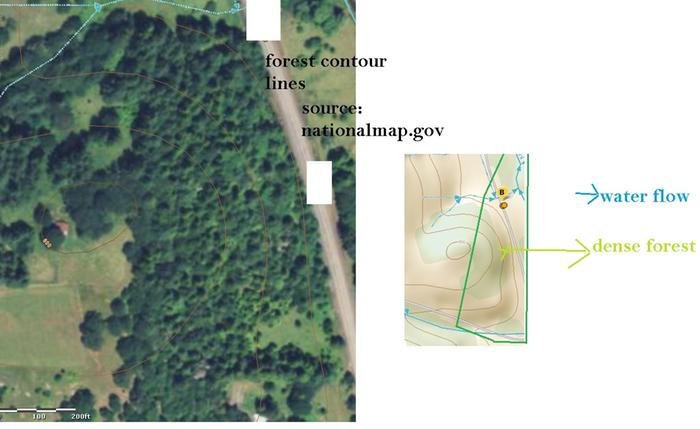Wesley Johnson : I have heard of several schemes to use hemp as a replacement for the raw material in paper making, and flooring and many other things too.
So there is a potential that if and when hemp could be legally grown that former timberland might be turned into land for growing crops, but not until the fallow
and the abandoned land is placed into production ! This will create a breathing space, also much of the land in timber is not suited for other crops !
So - The Very 1st thing anyone with Raw timberland needs is a survey of the type of trees on that property. This is Timber Cruising and is done by a professional
Timber Cruiser. Your local or state Water and Soil District will be able to help you find one, or perhaps a surveyer who normally finds the boundaries on your
property will know where to find one !
With a map showing the types of timber standing on your property you can come up with a 20 year plan to improve your tree stands and immediately generate
fire wood for sale or personal use. some materials can be used to improve wild life habitat ,or make hugel beds !
After that you can see if the standing timber is mature enough for harvest for building, construction or Furniture making, with good management and luck a
necessary 30% -40% of indigenous trees can be left in place and replaced as needed by volunteer saplings. Wether your existing trees are a good match for
the local timber market is initially a crap shoot, after the sick and dying trees are removed, and the deadwood dealt with, you may have with hard work developed
most of the skills to match your timberland to your needs and Your local market.
The Permaculture way tends to rely on having several years to plan out your lands future !
I hope that I have answered some of the thoughts behind your stated question, and given you something to think about !
You might want to give us a location with your next question this will help us give you better answers ! See Links Below :
https://permies.com/t/34193/tnk/permies-works-links-threads
https://permies.com/t/43625/introductions/Universal
For the Good of the Crafts Big AL







